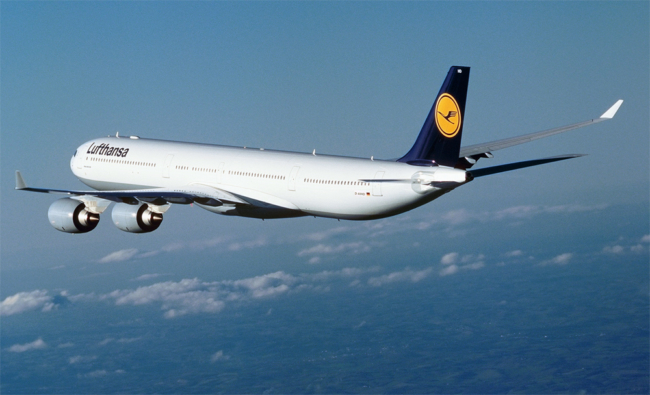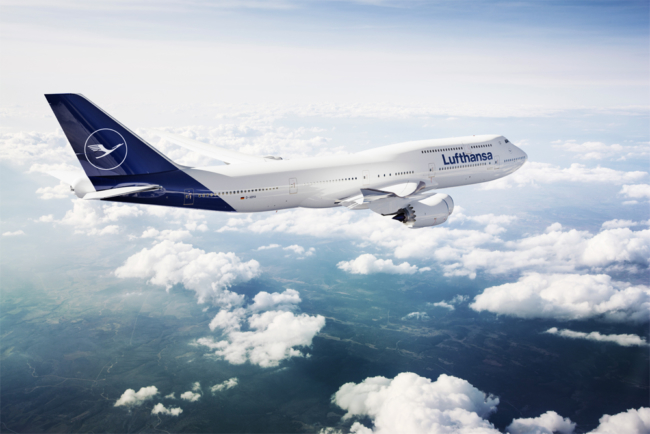Lufthansa gets its €9 billion bailout – of which only €3 billion is a loan. What does IAG do?
Links on Head for Points may support the site by paying a commission. See here for all partner links.
Lufthansa and the German Government finally agreed a €9 billion bailout on Monday, although there remains a risk that the European Commission blocks the deal or requires substantial changes.
In summary:
The German Government will take a 20% shareholding in Deutsche Lufthansa
It has an option to trigger an additional purchase of 5% + 1 share, creating a block for key votes, if there is any attempt to takeover the airline during the period that Government loans are still outstanding

It can also trigger the additional purchase of 5% + 1 share in the event that the airline fails to make an interest or capital repayment on the money invested
The Government will take two seats on the supervisory board
The Government will not vote its shares at the Annual General Meeting
The Government has agreed to sell its shares by the end of 2023 if the company has repaid its investment and the share price has reached a certain threshold.
The investment will be structured as follows:
€300 million to acquire the shares
€5.7 billion in redeemable non-voting shares, of which €4.7 billion will carry a guaranteed 4% yield, rising in stages to 9.5% by 2027 (this does not have to be repaid, but it is clearly expensive and the airline will want to refinance it as soon as possible)
€3 billion as a three year direct loan provided by the state-run development bank KfW
The following restrictions will be in place until the Government is fully repaid:
The company cannot pay dividends
Management pay will be capped, albeit at an unspecified level
There is no mention of the requirement to continue with the planned purchase of Airbus aircraft, which was believed to be a sticking point in negotiations last week. Lufthansa is likely to want to cancel or defer these orders given that the airline is currently planning to cut its fleet by 100 aircraft. The linked article mentions cutting 70 aircraft but these number has since been increased.
But €9 billion isn’t enough ….
There is no point stopping at €9 billion, of course, if you can get more. Lufthansa is also insisting that the Swiss, Austrian and Belgian Governments put their hands in their pockets.
Switzerland has already agreed CHF 1.3 billion of credit guarantees, which will allow Lufthansa to borrow the equivalent sum on exceptionally generous terms because the Swiss Government is guaranteeing its repayment.
Deals have not yet been reached with the Austrian and Belgian Governments.

European Union approval could be an issue
Once signed off by the various Lufthansa boards, the deal will require approval by the European Union. This is by no means guaranteed, especially as Ryanair is highly likely to object.
There could be pressure to open up slots at Frankfurt or Munich, or to reform some of the complex deals which protect the airline from competition.
(Emirates, for example, has been very vocal in its opposition to a Government ban on flying to more than four cities in Germany. It cannot fly to the new Berlin Airport unless it drops one of its existing routes to Frankfurt, Munich, Hamburg or Dusseldorf.)
Where does this leave IAG / British Airways?
Air France KLM has already secured a bailout of €10 billion. Lufthansa is now at €10 billion, including the Swiss loan guarantee, and may end up at €11 billion when the Austrian and Belgian Governments have chipped in.
In context, the €1 billion taken by Iberia and Vueling from the Spanish Government and the £300 million taken by IAG from the UK Government looks like small change.
It is a difficult situation. The UK and Spanish Governments would struggle to refuse IAG a similar €10 billion package to those offered to Air France KLM and Lufthansa.
British Airways cannot realistically take any funding from the UK Government whilst it is planning to cut pay for virtually all staff and to make massive redundancies. Accepting Government money would also guarantee the survival of Virgin Atlantic since it would insist on a similar deal.
The risk for IAG is that it finds itself seriously weakened against its two major European competitors going forward, both of which now have bulging wallets.
PS. If you are not a regular Head for Points visitor, why not sign up for our FREE weekly or daily newsletters? They are full of the latest Avios, airline, hotel and credit card points news and will help you travel better. To join our 70,000 free subscribers, click the button below or visit this page of the site to find out more. Thank you.

How to earn Star Alliance miles from UK credit cards (July 2025)
None of the Star Alliance airlines currently have a UK credit card.
There is, however, still a way to earn Star Alliance miles from a UK credit card.
The route is via Marriott Bonvoy. Marriott Bonvoy hotel loyalty points convert to over 40 airlines at the rate of 3:1.
The best way to earn Marriott Bonvoy points is via the official Marriott Bonvoy American Express Card. It comes with 20,000 points for signing up and 2 points for every £1 you spend. At 2 Bonvoy points per £1, you are earning (at 3:1) 0.66 airline miles per £1 spent on the card.
There is a preferential conversion rate to United Airlines – which is a Star Alliance member – of 2 : 1 if you convert 60,000 Bonvoy points at once.
The Star Alliance members which are Marriott Bonvoy transfer partners are: Aegean, Air Canada, Air China, Air New Zealand, ANA, Asiana Airlines, Avianca, Copa Airlines, Singapore Airlines, TAP Air Portugal, Thai Airways, Turkish Airlines and United Airlines.
You can apply here.

Marriott Bonvoy American Express Card
20,000 points and 15 elite night credits each year Read our full review



 Rhys
Rhys 





Comments (46)